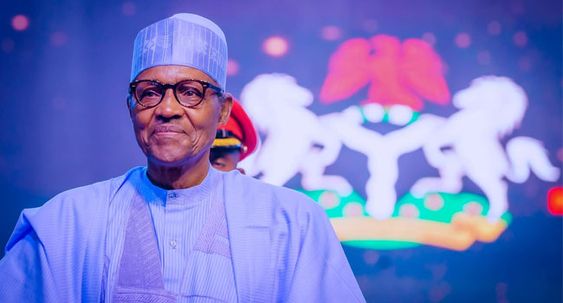Headlines
Buhari is criticised for violating the Supreme Court’s injunction to reform the naira

On Thursday, hours after his nationwide broadcast on the cash crisis swap, President Muhammadu Buhari came under intense criticism.
Legal professionals and the general public criticised the President for directing the Central Bank of Nigeria (CBN) to only continue accepting the old N200 notes as lawful tender until April 10, 2023.
His injunction goes against the Supreme Court’s February 8 decision that the N200, N500, and N1,000 old notes should continue to be valid currency.
The decision was upheld by the Court on Thursday, delaying the decision until February 22.
As violence broke out in some areas of the country due to the rejection of old notes and the lack of new notes, Buhari issued an order on Thursday morning ordering that only the old N200 note shall be reissued and kept as legal money until April 10, 2023.
His decision drew widespread censure, with many criticising him for going against the directives of the nation’s top court.
Dr. Monday Ubani, a human rights attorney, stated: “There was an interim order which says there should be a stay of action until all grievances are examined because regrettably, many other states are joining the lawsuit. The Supreme Court saw the wisdom in giving room for other parties to join so that there will be proper parties before it before going ahead to look at the issues on its merit, which was why there was an adjournment yesterday.
“Unfortunately, the president chose to disregard what was happening in the Supreme Court this morning.
“When you state that you will only permit old N200 to be in use, it indicates that old N500 and N1000 are no longer recognised as legal cash.
“From what I can gather, he has effectively overthrown the Supreme Court. By what he just did, he has demonstrated an obvious lack of awareness of the proceedings at the Supreme Court.
“I’m not too pleased with what happened this morning over the president’s decision to overturn the Supreme Court. We don’t advertise that we practise democracy to the outside world. This sets an incorrect precedent.
How can you inspire trust in the world community to invest in your country if you can’t follow court orders? Is it possible for a court ruling to be followed in your country in the event of a dispute? The wrong signal is being given by us.
Ebunoluwa Adegboruwa, SAN, an activist-attorney, remarked.
The President engaged in “executive rascality,” according to Adegboruwa, by attempting to change the Supreme Court’s ruling that all old notes should remain legal tender.
Buhari was criticised for seeking to “overrule the Supreme Court of Nigeria” by the Senior Advocate of Nigeria.
In a petition brought by the states of Kaduna, Kogi, and Zamfara, the Supreme Court on Wednesday prevented the Federal Government from enforcing the February 10 deadline for the use of old naira notes, acting through the Central Bank of Nigeria (CBN) or any other agency.
The “interim injunction” will remain in effect “waiting the hearing and determination of the plaintiffs/applicants’ request on notice for interlocutory injunction,” a seven-member panel led by Justice John Okoro said in a unanimous decision.
On Wednesday, the court declared that its injunction from February 8 prohibiting the Federal Government and its agents from enforcing the February 10 cutoff date for the usage of old 200, 500, and 1000 naira notes is still in effect.
READ ALSO: Buhari will take part in the 36th AU summit in Addis Abeba
Although the President praised his administration’s “respect” for the law and acknowledged in his speech that “the case is before the courts and some pronouncements have been made,” he nevertheless partially disregarded the apex court’s ruling.
He stated: “I have given approval to the CBN that the old N200 bank notes be released back into circulation and that it should also be allowed to circulate as legal tender with the new N200, N500, and N1000 banknotes for 60 days from February 10, 2023 to April 10, 2023, when the old N200 notes cease to be legal tender.”
Adegboruwa chastised him and added, “The President cannot overrule the Supreme Court of Nigeria. A democracy has a division of powers.
The Supreme Court of Nigeria is the ultimate authority in judicial judgements in Nigeria, according to section 235 of the 1999 Constitution.
The President is legally required to obey, uphold, and implement the Supreme Court’s ruling, according to Section 287(1) of the Constitution.
The 1999 Constitution’s Section 287(1) states: “(1) The decisions of the Supreme court shall be enforced in any region of the Federation by all authorities, people, and courts having subordinate authority to that of the Supreme Court.”
The senior attorney described the President’s speech as “sad for our democracy.” The President should not have continued to change the Supreme Court’s order because he had acknowledged that the matter is pending.
In order to prevent chaos and lawlessness, the President and other members of the executive branch should not convey the idea that people can flagrantly disobey the legal orders of any court.
“The President’s decision to separate the denomination of the old notes for legality amounts to executive rascality and blatant disregard for and contempt for the Supreme Court. The President has no discretion over which part of a Supreme Court order will be followed.
He should go backwards, Adegboruwa urged.
If the President doesn’t change his mind and add the old N500 and N1000 notes, the Supreme Court should overturn his decision on February 22 when the matter is heard, he continued.
Nations
